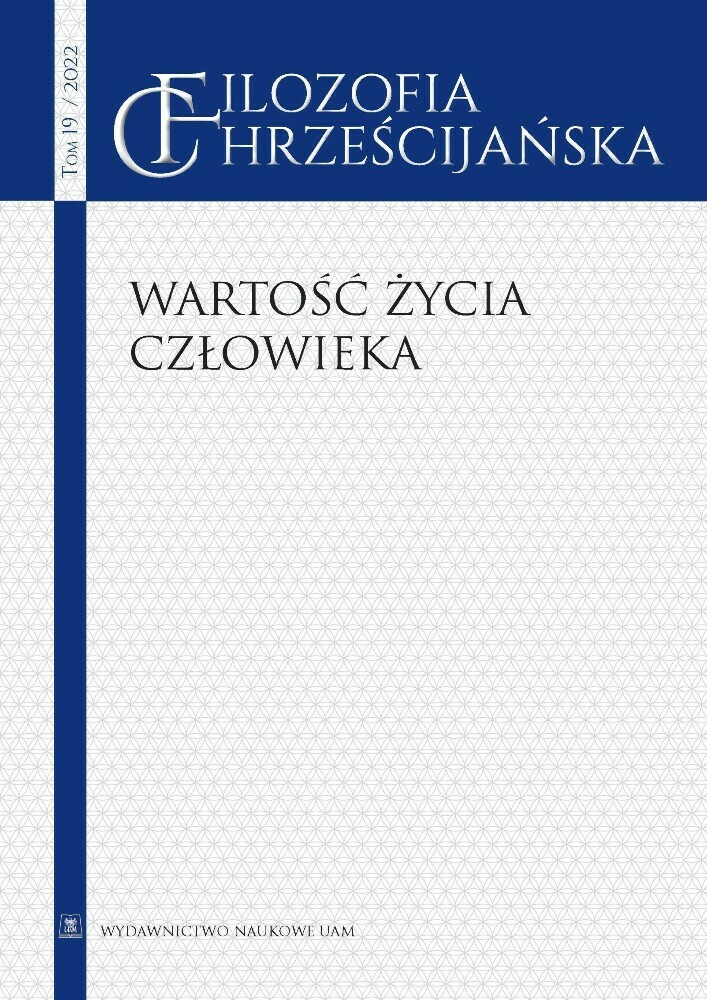Abstract
Religious experience seems to lie outside the boundaries of the immanent structures of experience that phenomenology studies. Phenomenology was born, after all, at the moment of delineating the boundary between the immanent structure of experience and what is external to it and therefore secondary. In France, however, it is not difficult to find thinkers who do not hesitate to cross this line. French phenomenology, thus opening the possibility of the world of religious life, seems to move within the limits of the method described by Husserl. The phenomenological concept of the world of consciousness is based on the belief that there is a fundamental difference between the psychological experience and the experience of consciousness. At the source of the concept of the world of religious life described here, on the other hand, is the belief that because religious experience is not a psychological experience, but an experience of consciousness, it meets the criteria set by phenomenology for experience. Therefore, it is justified here to use the concept of religious experience in the strict sense. It is also legitimate to subject this experience to phenomenological examination. Religious experience, on the other hand, shapes the world of religious life referred to in this article, which in itself can also become the subject of phenomenology research.
References
Capelle-Dumont P., Finitude et mystère, t. 1, Paris 2011.
Capelle-Dumont P., Finitude et mystère, t. 2, Paris 2013.
Capelle-Dumont P., Finitude et mystère, t. 3, Paris 2016.
Capelle-Dumont P., Que devient la «phénoménologie française»?, „Cites” 4 (2014) 56, s. 35-50. https://doi.org/10.3917/cite.056.0035 DOI: https://doi.org/10.3917/cite.056.0035
Falque E., La facticité visitée, „Transversalités” 2 (2009) 110, s. 197-222. https://doi.org/10.3917/trans.110.0197 DOI: https://doi.org/10.3917/trans.110.0197
Falque E., Le livre de l’expérience: D’Anselme de Cantorbéry à Bernard de Clairvaux, Paris 2015.
Falque E., Le passeur de Gethsémani. Angoisse, souffrance et mort: lecture existentielle et phénoménologie, Paris 1999.
Falque E., Les Noces de l’Agneau. Essai philosophique sur le corps et l’eucharistie, Paris 2011.
Falque E., Métamorphose de la finitude. Essai philosophique sur la naissance et la résurrection, Paris 2006.
Falque E., Passer le Rubicon. Philosophie et théologie: Essai sur les frontières, Bruxelles 2013.
Falque E., Triduum philosophique, Paris 2015.
Gabellieri E., Le phénomène et l’entre-deux: Pour une métaxologie, Paris 2019.
Greisch J., Le Buisson ardent et les Lumières de la raison, t. 2, Paris 2002.
Housset E., Husserl et l’énigme du monde, Paris 2000.
Housset E., La vocation de la personne. L’histoire du concept de personne de sa naissance augustinienne à sa redécouverte phénoménologique, Paris 2007. https://doi.org/10.3917/puf.houss.2007.01 DOI: https://doi.org/10.3917/puf.houss.2007.01
Janicaud D., La phénoménologie dans tous ses états. Le tournant théologique de la phénoménologie française suivi de La phénoménologie éclatée, Paris 2009.
Lacoste J.Y., Expérience et absolu. Questions disputées sur l’humanité de l’homme, Paris 1994. https://doi.org/10.3917/puf.lacos.1994.01 DOI: https://doi.org/10.3917/puf.lacos.1994.01
Lacoste J.Y., From theology to theological thinking, tłum. C. Hackett, New York 2014.
Lacoste J.Y., Le monde et l’absence d’oeuvre, et autres études, Paris 2000. https://doi.org/10.3917/puf.lacos.2000.01 DOI: https://doi.org/10.3917/puf.lacos.2000.01
Lacoste J.Y., L’intuition sacramentelle et autre essais, Paris 2015.
Lacoste J.Y., Note sur le temps. Essai sur les raisons de la mémoire et de l’espérance, Paris 1990.
Lévinas E., Dieu qui vient à l’idée, Paris 2004.
Lévinas E., En découvrant l’existence avec Husserl et Heidegger, Paris 2004.
Lévinas E., La théorie de l’intuition dans la phénoménologie de Husserl, Paris 2010.
Manzi F., Pagazzi G.C., Le regard du Fils. Phenomenologie chrostologique, Paris 2006.
Romano C., Au coeur de la raison, la phénoménologie, Paris 2010,
Romano C., L’évènement et le monde, Paris 1998.
Tourpe E., Donation et réciprocité, Paris 2020.
Tourpe E., L’être et l’amour – Un itinéraire métaphysique, Paris, 2010.
Trotignon P., Le coeur de la raison, Paris 1986.
License
Copyright (c) 2022 Przemysław Zgórecki

This work is licensed under a Creative Commons Attribution-NoDerivatives 4.0 International License.
Autorzy
Autorzy tekstów przyjętych do publikacji w czasopiśmie Filozofia Chrześcijańska są zobowiązani do wypełnienia, podpisania i odesłania na adres redakcji umowy o udzielenie nieodpłatnej licencji do utworów, z zobowiązaniem do udzielania sublicencji CC.
Zgodnie z umową, autorzy tekstów opublikowanych w czasopiśmie Filozofia Chrześcijańska udzielają Uniwersytetowi im. Adama Mickiewicza w Poznaniu niewyłącznej i nieodpłatnej licencji oraz zezwalą na użycie sublicencji Creative Commons Attribution-NoDerivatives 4.0 International (CC BY-ND 4.0).
Autorzy zachowują prawa do dalszego, swobodnego rozporządzania utworem.
Użytkownicy
Zainteresowani użytkownicy internetu uprawnieni są do korzystania z utworów opublikowanych od 2015 roku w Filozofia Chrześcijańska pod następującymi warunkami:
- uznanie autorstwa - obowiązek podania wraz z rozpowszechnionym utworem, informacji, o autorstwie, tytule, źródle (odnośniki do oryginalnego utworu, DOI) oraz samej licencji;
- bez tworzenia utworów zależnych - utwór musi być zachowany w oryginalnej postaci, nie można bez zgody twórcy rozpowszechniać np. tłumaczeń, opracowań.
Do wszystkich tekstów opublikowanych przed 2015 r. prawa autorskie są zastrzeżone.
Inne
Uniwersytet im. Adama Mickiewicza w Poznaniu zachowuje prawo do czasopisma jako całości (układ, forma graficzna, tytuł, projekt okładki, logo itp.).

